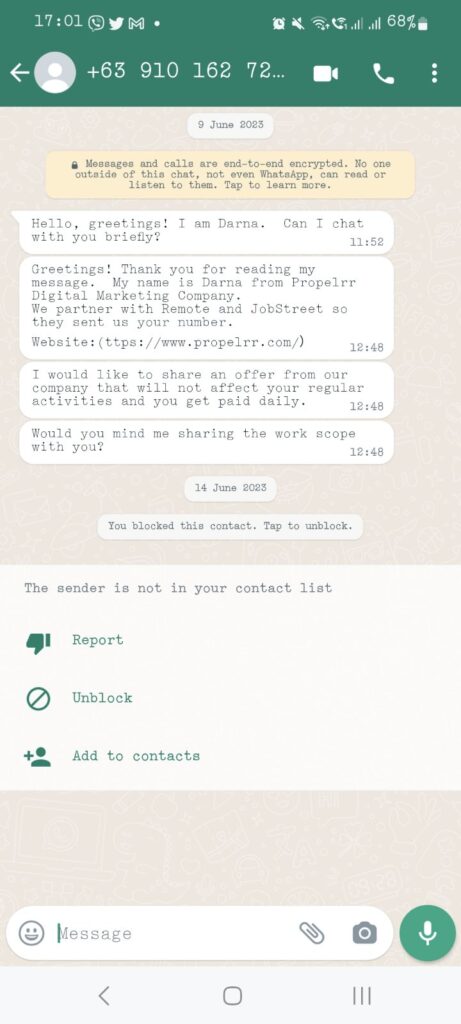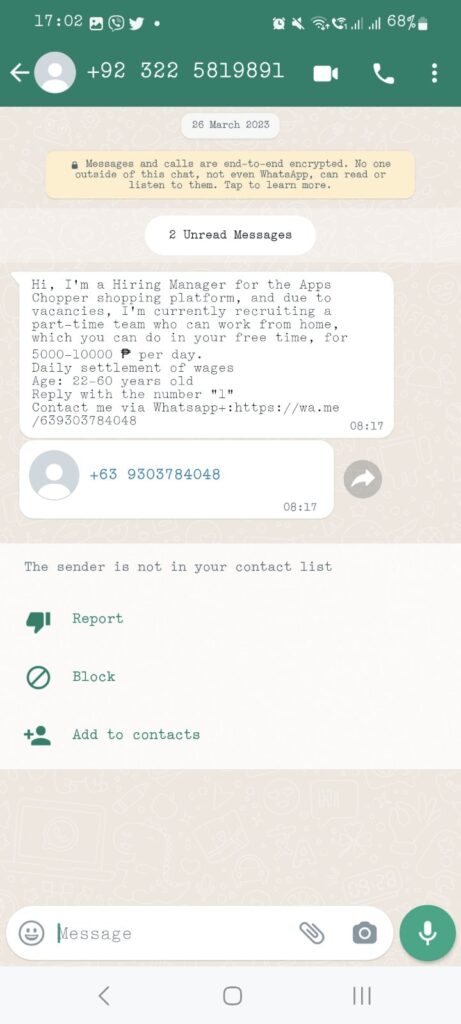It seems more and more Filipinos are falling prey to one of the most predatory schemes that’s out there on the internet, to date: “job” or “task” scams, in which victims are asked to put in funds for “one-time registration fees” to gain access to larger pools of money from scammers pretending to be professionals from reputable investment companies or private corporations.

These scammers steal money through social engineering crimes, and disgustingly prey on the vulnerable and financially desperate Filipinos who are looking to augment their income through odd jobs online. Here are some examples of actual task scam messages the POP! team has received via Whatsapp:

After scammers gain the trust and confidence of their victims, they eventually remove access from their victims to withdraw amounts from their own accounts. While task scammers have mastered the process of manipulation, there are still ways to detect their Ponzi-style scheme. To protect yourself from frauds and scams, here are some of the “job scam” warning signs that you should look out for:
1. It pays a lot of money for simple tasks
If you see a job post that offers a thousand bucks for little work like posting, liking, and sharing content on social media, you should feel skeptical about it. Everyone wants this kind of high paying yet easy job, but realistically, there’s no such thing as earning $1,000 or more by simply scrolling through your feed. These jobs are meant to remove your inhibitions and doubts as you get paid a lot doing menial jobs, which causes victims to “invest” more into gaining access to higher-paying “accounts.”
2. The job post is informal, and will often times contain grammatical and spelling errors
Legitimate job offers usually sound formal and professional, without any grammatical lapses and sent through legitimate channels and email addresses. Check for the legitimacy of their declared affiliation by calling the company, or by asking more details from them. (See example messages above!)
3. You’re asked for personal and financial details
If it’s a legitimate job offer, it will not be asking for information about your bank accounts. Likewise, be careful about giving confidential information to people you barely know.
4. It doesn’t require a rigorous application process
If you’re applying for a legitimate job, you have to undergo the process of interviews, exams, and other requirements to finally receive an offer. So be suspicious of “recruiters” who don’t ask for much credentials from you during your “application” period.
5. Using a fake company name and URL
Scammers alter legitimate company names and website, and if you don’t pay much attention to small details, you might get scammed. To avoid phishing, do extensive research about the company’s background. (Again, see example messages above!)
In conclusion: If an offer is too good to be true, it probably is. Be careful out there.
Other POP! stories that you might like:
This attempt at scamming people using a famous Korean celebrity’s name is actually wack
Getting tons of spam messages? Here’s how you can deal with them
Here’s how you can protect yourselves from e-wallet/online bank scammers
‘Gen Z breaking the mold’: Ambitious but unwilling to conform to corporate culture
‘Tech racism is real’: Asian MIT student’s professional headshot turns Caucasian with AI tool
Tenured insurance employee fired after company detects her inactivity while working from home
Organizers of GVF 2023 orders ‘The 1975’ to pay S$3.6 million following band’s controversy





